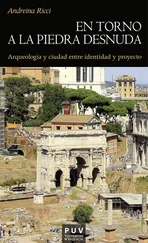The warm weather that had returned the previous day accompanied us on our journey to London and I noticed, as we came near to the city, that the grass beside the road was brown and parched and all the fallen leaves dry and brittle, as if no rain had come for a great while. I could see a little cloud of flies and insects outside the window of the coach, moving with us, so I enquired of our fellow passengers, "What has the weather been in London since the summer?" And they told me that you could not say what it had been "since the summer" for the summer had never truly gone, but stayed on "most sultry and horrid" and that no cooling breeze nor fresh shower had come to the capital for months, "so that the smell of the place is getting very foul and all who are wise are journeying out of it and not into it."
Once begun, then, on the subject of the weather, the people in the coach now became very talkative on the subject of the plague – as if they had longed for days and nights to describe it and dwell upon its horrors but had lacked any audience to listen to them. (I have often noticed how it is in the nature of many men and women to revel in tales of horror and misery, but I find it to be a very odious thing, and I know that one of the traits I admired in the King was the way he made light of his past sufferings and did not bore anyone with them.) It was told to us how, when plague came into a house, every person in it but the sufferer ran out of it, mothers abandoning their children, servants their masters, wives their husbands, "so that hundreds die alone each day and then they are not found and so their flesh rots and is preyed upon by rats who carry the germ back to the streets, and the stench of the dead in some parts of the city is beyond what you could imagine…"
I was tempted to say that, being a physician, I was quite familiar with the smell of corpses, but then I was glad that I had not made this reply, for our fellow travellers began to reveal to us the hatred that was felt for everyone in the world of medicine – from the surgeon to the apothecary – for their inability to find any means of prevention or any cure. "Doctors," announced a loud-voiced woman seated opposite me, "are become the people most despised in England." And she sucked on her teeth, loving the taste of the venom in her mouth.
We came at dusk into Cheapside, where Katharine's mother lived. We got out of the coach and the two sacks containing my worldly goods were handed down to me.
I stood still and took my first breath of the city. The scent of the air did not seem to have been altered by the presence of the plague. What I did notice at once, however, was a strange quietness in the street and beyond it, which was like the quietness of snow. It was as if the city had fallen into a trance, or else become a place that I was not really standing in, but only saw and heard from a long way off. I looked all around me. I could see a group of children running after the coach. I could see two women standing on a doorstep, one holding a baby. A cart, loaded with barrels, passed and I could hear the hooves of the cart-horse, but very quickly this sound and the sound of the children shouting faded and died and there was silence. I bent down to pick up one of the flour sacks. As I did so, I saw Katharine lift her skirts and squat down to piss into the gutter. "When you begin to carry a child," she said, "you do your business wherever you can and you cannot wait." At that moment, her mother came out of the house. She put her hands to her mouth and stared at the daughter she had given to the Keepers of Whittlesea, then crossed herself, as if in fear. Katharine, red in the face from the exertion of emptying her bladder, looked up at her mother and began to laugh. And I do not think I have ever witnessed – between two people long parted from each other – a more awkward meeting.
The mother is a tall, fleshy widow of forty or forty-five. She likes to be called by her two Christian names, Frances Elizabeth, as if they were joined together to make one name. She makes a living by writing letters for those who cannot read or write, but I have seen her writing and it is an ugly hand and her spelling is poor. A little sign by her front door reads: Frances Elizabeth Wythens. Letters Written. One penny per line. She learned to write, not from any school or teacher, but from her dead husband, who was a clerk in the Office of Patents. "He was," says Frances Elizabeth to me on our first night in her house, "a most conscientious scribe."
The house is narrow and dark and over-heated by the fires she keeps burning, one upstairs and one down, as a prevention against the pestilence, which has already visited two families in Cheapside. The place smells of smoke and of old varnish and camphor, and the windows are narrow and grimy. The room we have been given reminds me a little of the room I had long ago at Ludgate, which is only a short walk from here. In my bed there I knew oblivion of the very sweetest kind, but in this one I cannot seem to come to any unconsciousness or any forgetting. I lie awake and listen to the silence that has fallen upon London. It is Katharine who sleeps. Her tangled hair falls onto my shoulder and her arm is laid across my breast.
Chapter Twenty-Two. A Prophylactic
Not long after our arrival in London, while on an errand to buy ink for Frances Elizabeth, I met a group of men attired in rags and scourging themselves with cruel little whips, like the Flagellants of the Black Death in 1348. We were in Change Street and I presumed they were going up to St Paul 's church to pray for an end to the pestilence. And so, finding myself very curious to know what solace this hurting of their flesh afforded them, I followed them.
I noticed that whatever people we met coming in the opposite direction looked on these Flagellants with great fear, as if they themselves could be the source of the plague germ, and they crossed the street so that they would not come near them. And I thought how a great fear of one particular thing may often create in people the habit of fear , so that everything which is not familiar and comfortable to them makes them afraid. And this thought was followed by the realisation that, because I no longer hold my life to be a lovely and precious thing, I am no longer afraid of anything at all, not even of death. And I smiled to myself for, unannounced, the King walked into my mind. And he looked at this new fearlessness of mine and sniffed and said: "Good." And then, as is his way, he turned and walked away, not deigning to comment any further.
We were nearing St Paul 's. I did not know how long the praying of these Flagellant people might last once they went inside the church, and so, mindful of my errand of the ink, I decided to approach them straight away and ask them to spare me a few minutes before they began their prayers.
Coming up to the group from behind, I noticed how, on the shoulders of two of them, there was a rash of small wounds, as if the skin had been pricked and burst, and that some of these were infected and running with pus. And so I began my conversation with them by saying (quite loudly, so that they would hear me over their wailing): "Let me tell you good people that I am a physician and if ever the pain of your wounds becomes greater than you intend… I could give you a balm for it, to make it less…"
They turned and all stared at me and I saw that their faces were smeared with a white paste they had put on to make themselves resemble skeletons. I understood then that it was their intention to frighten people away and, indeed, they appeared somewhat affronted that I had had the temerity to approach them.
"Our pain," said one of them curtly, "is never greater than we intend, nor is it less, and as for you, the physicians, why do you not punish yourselves?"
Читать дальше











